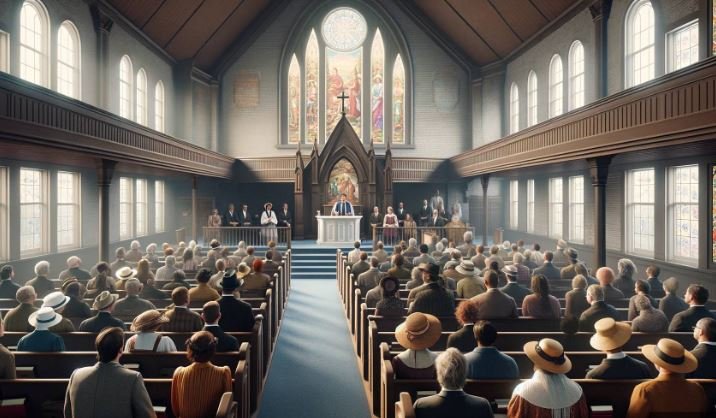The Multifaceted Role of the Church in Modern Society
The church plays a pivotal role in modern society, influencing communities through various means beyond spiritual guidance alone. Churches actively engage in social services, education, and cultural preservation, contributing significantly to societal well-being and cohesion.

1. Providing Spiritual Guidance
The church guides individuals in their spiritual journeys, offering teachings and support to help people grow in faith and understanding of religious principles. Through preaching, counseling, and community gatherings, churches foster spiritual development and provide a moral compass for individuals and families alike.
2. Engaging in Social Services
Churches are active in addressing social issues such as poverty, homelessness, and healthcare disparities. They often organize food drives, shelters, and outreach programs to assist vulnerable populations and promote social justice. By mobilizing resources and volunteers, churches contribute to alleviating societal inequalities and improving the quality of life for marginalized groups.
3. Promoting Education and Learning
Many churches operate educational programs, including schools, Sunday schools, and adult education classes. These initiatives provide opportunities for intellectual growth, moral education, and skills development within the community. By nurturing a culture of lifelong learning, churches empower individuals to reach their full potential and contribute positively to society.
4. Fostering Community and Fellowship
Churches serve as centers of community life, fostering fellowship and mutual support among members. Regular worship services, prayer groups, and social events create opportunities for individuals to connect, build relationships, and find a sense of belonging. This sense of community strengthens social bonds and promotes unity among diverse groups within modern society.
5. Preserving Cultural Heritage
Churches play a vital role in preserving cultural heritage through art, music, architecture, and traditions associated with religious practices. Historical churches often serve as landmarks and cultural institutions that contribute to the identity and heritage of local communities. By preserving and celebrating cultural traditions, churches enrich the cultural fabric of society and promote intergenerational continuity.
6. Advocating for Moral and Ethical Values
Churches advocate for moral and ethical values rooted in religious teachings, influencing public discourse on issues such as human rights, justice, and ethical governance. Through advocacy efforts and community outreach, churches seek to uphold principles of compassion, integrity, and social responsibility in the broader society.
Conclusion
The church plays a multifaceted role in modern society, encompassing spiritual guidance, social services, education, cultural preservation, community building, and advocacy for moral values. By actively engaging in these areas, churches contribute to the well-being and cohesion of communities, address societal challenges, and promote positive social change. Embracing its diverse responsibilities, the church continues to be a cornerstone of support, compassion, and moral leadership in contemporary society.



